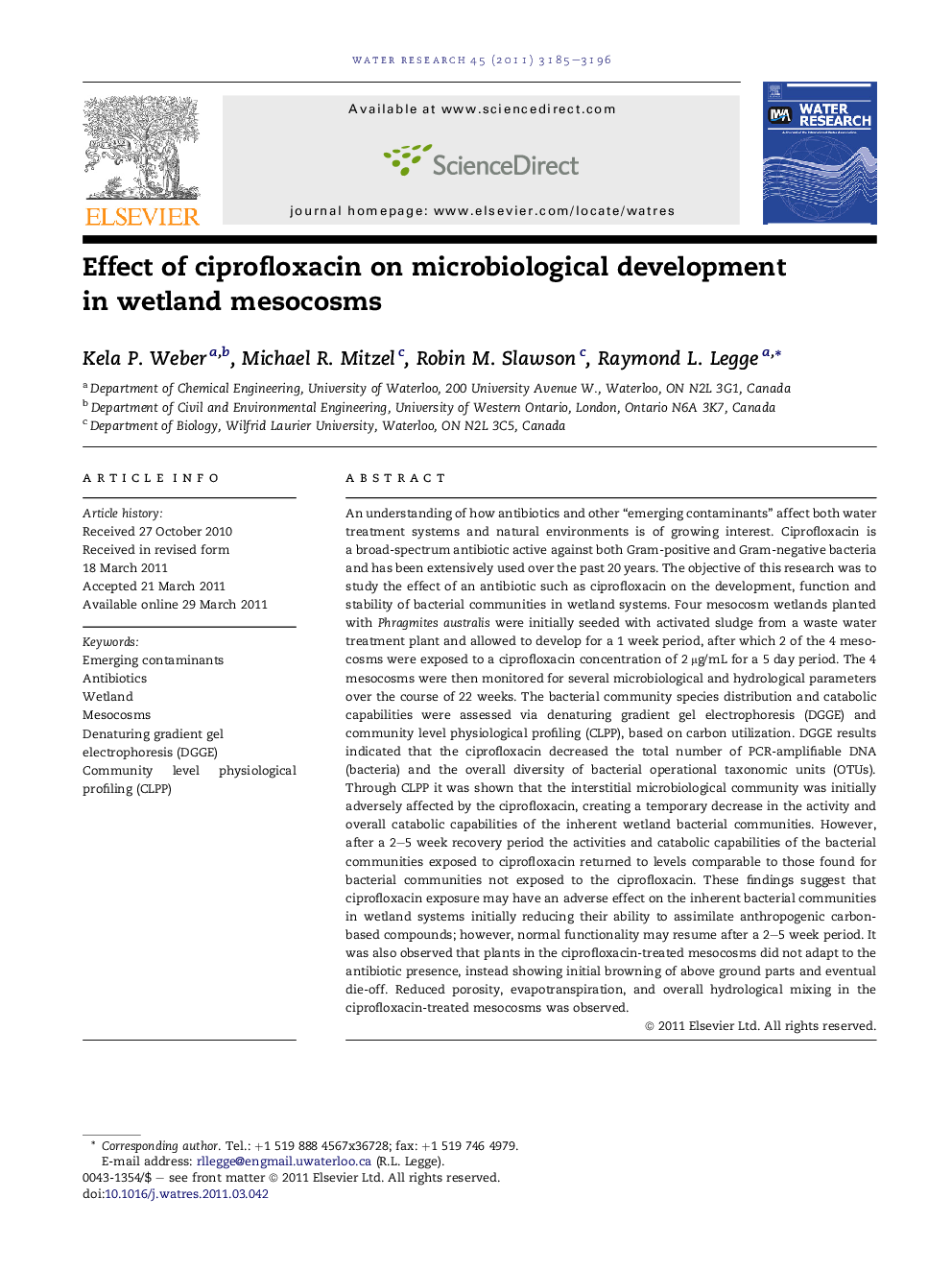| کد مقاله | کد نشریه | سال انتشار | مقاله انگلیسی | نسخه تمام متن |
|---|---|---|---|---|
| 4483249 | 1316882 | 2011 | 12 صفحه PDF | دانلود رایگان |

An understanding of how antibiotics and other “emerging contaminants” affect both water treatment systems and natural environments is of growing interest. Ciprofloxacin is a broad-spectrum antibiotic active against both Gram-positive and Gram-negative bacteria and has been extensively used over the past 20 years. The objective of this research was to study the effect of an antibiotic such as ciprofloxacin on the development, function and stability of bacterial communities in wetland systems. Four mesocosm wetlands planted with Phragmites australis were initially seeded with activated sludge from a waste water treatment plant and allowed to develop for a 1 week period, after which 2 of the 4 mesocosms were exposed to a ciprofloxacin concentration of 2 μg/mL for a 5 day period. The 4 mesocosms were then monitored for several microbiological and hydrological parameters over the course of 22 weeks. The bacterial community species distribution and catabolic capabilities were assessed via denaturing gradient gel electrophoresis (DGGE) and community level physiological profiling (CLPP), based on carbon utilization. DGGE results indicated that the ciprofloxacin decreased the total number of PCR-amplifiable DNA (bacteria) and the overall diversity of bacterial operational taxonomic units (OTUs). Through CLPP it was shown that the interstitial microbiological community was initially adversely affected by the ciprofloxacin, creating a temporary decrease in the activity and overall catabolic capabilities of the inherent wetland bacterial communities. However, after a 2–5 week recovery period the activities and catabolic capabilities of the bacterial communities exposed to ciprofloxacin returned to levels comparable to those found for bacterial communities not exposed to the ciprofloxacin. These findings suggest that ciprofloxacin exposure may have an adverse effect on the inherent bacterial communities in wetland systems initially reducing their ability to assimilate anthropogenic carbon-based compounds; however, normal functionality may resume after a 2–5 week period. It was also observed that plants in the ciprofloxacin-treated mesocosms did not adapt to the antibiotic presence, instead showing initial browning of above ground parts and eventual die-off. Reduced porosity, evapotranspiration, and overall hydrological mixing in the ciprofloxacin-treated mesocosms was observed.
► Exposure of wetland mesocosms to ciprofloxacin decreased bacterial diversity.
► Catabolic activities decreased temporarily but returned to untreated levels.
► Ciprofloxacin had an adverse effect on the plants and as a result hydrological characteristics.
Journal: Water Research - Volume 45, Issue 10, May 2011, Pages 3185–3196